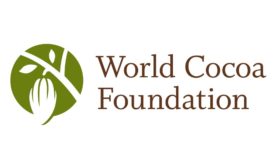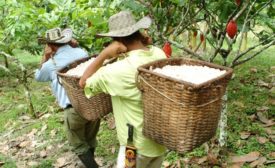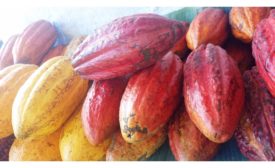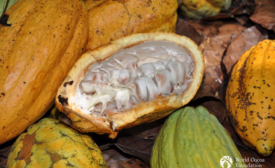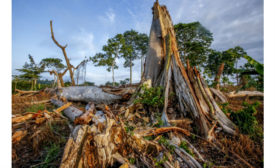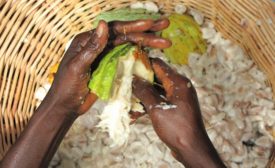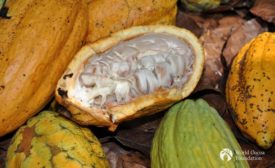Home » World Cocoa Foundation
Articles Tagged with ''World Cocoa Foundation''
Event is set for Oct. 26-27 in Brussels, Belgium.
Read More
World Cocoa Foundation names Martin Short as president
Short succeeds Richard Scobey, who left in May 2021.
September 2, 2021
Colombia commits to deforestation-free chocolate
The Colombian Government and Colombia’s two leading cocoa companies pledge to produce deforestation-free and ‘peace-friendly’ cocoa.
July 18, 2018
One-on-One: Bill Guyton, incoming executive director of the Fine Chocolate Industry Association
FCIA Elevate Chocolate event set for June 30 in New York City.
June 23, 2018
Do chocolate bars come from brown cows?
Informing chocolate consumers about growing process, social responsibility imperative to industry's success.
May 16, 2018
Good things happen in the cocoa sector when people care
Framework for Action could serve as model for other commodities.
January 18, 2018
CocoaAction Report Card: Room for improvement
Progress made, but challenges abound for cocoa industry to ensure there’s chocolate for future Halloweens.
November 1, 2017
Mighty Earth report blames West African deforestation on cocoa industry
World Cocoa Foundation president cites Cocoa & Forests Initiative effort, noting action plan will “double down” on ending deforestation.
September 13, 2017
WCF, partners announce $12-million investment in second phase of cocoa initiative
Annual partnership meeting draws more than 500 cocoa, chocolate industry representatives.
November 2, 2016
Major confectionery companies partner with foundation to improve education, support families in Cote D’Ivoire
Mondelez, Nestlé, Barry Callebaut and Mars, Inc., to invest $5 million through projects.
October 26, 2016
Snack on the latest trends, news, and developments!
Stay in the know with Snack Food & Wholesale Bakery, the premier source of information for snack, bakery, and confectionery professionals.
JOIN TODAY!Copyright ©2025. All Rights Reserved BNP Media.
Design, CMS, Hosting & Web Development :: ePublishing
